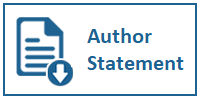THE ROLE OF SOCIAL MEDIA AGILITY: THE MODERATING OF CHANGE SEEKING
DOI:
https://doi.org/10.31937/manajemen.v14i1.2187Abstract
Abstract- Agility is applied to help brands to develop and quickly adapt with their operations to cope with changing customer developments. As the number of social media users in Indonesia increase, the application of social media agility is still rarely found in Indonesia. The high number of social media users in Indonesia has become a necessity for everyone to exchange information and go shopping. This makes brands change the way they interact with their customers and also develop strategies and tactics to overcome competitive competition in order to mantain their customers. This study developes previous research by analyzing the effect of customer engagement on customer based brand equity with change seeking as a moderating variable. This study uses a sampling method by collecting questionnaire data through google form with a total sample of 199 respondents. Based on the result of google form, only 150 respodents that meet the research criteria. The analytical instruments that used in the hypothesis are validity tests, reliability tests and descriptive statistics using AMOS 21 software. The results of this study show that Social Media Agility directly and indirectly (through Customer Engagement mediation) has a positive influence on Customer Based Brand Equity. And also Change Seeking strengthens the effect of Social Media Agility and Customer Engagement on Customer Based Brand, but it does not strengthen the effect of Social Media Agility on Customer Engagement. A brand needs to have greater plan in the use of social media for brand marketing strategies with innovation in social media. And this study can add practical information for marketing and managers about the use of social media in marketing strategies and also this study can be used as a new measurement step for improving operation aspects in social media for brand.
Keywords: Social Media Agility; Customer Engagement; Customer Based Brand Equity; Change Seeking
Downloads
Downloads
Published
How to Cite
Issue
Section
License
Authors retain copyright and grant the journal right of first publication with the work simultaneously licensed under a Creative Commons Attribution-ShareAlike International License (CC-BY-SA 4.0) that allows others to share the work with an acknowledgement of the work's authorship and initial publication in this journal.
Authors are able to enter into separate, additional contractual arrangements for the non-exclusive distribution of the journal's published version of the work (e.g., post it to an institutional repository or publish it in a book), with an acknowledgement of its initial publication in this journal.















